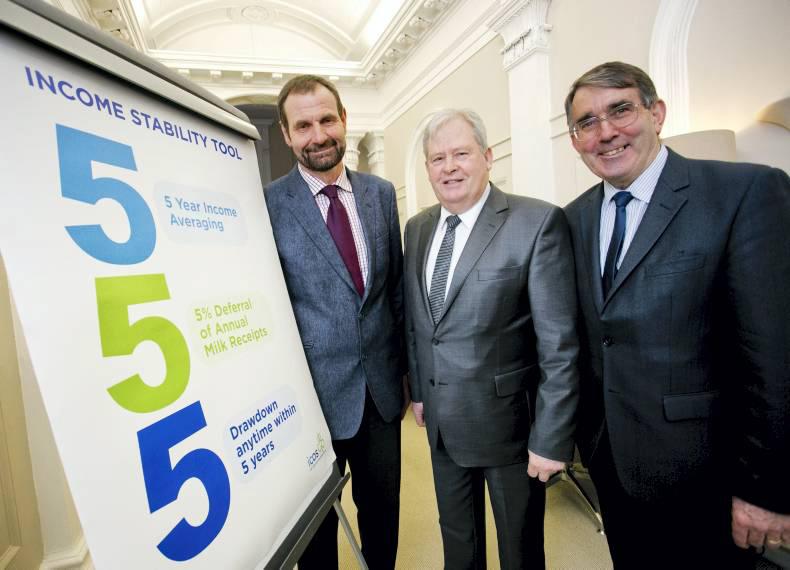The ICOS proposal is aimed at combatting extreme income volatility in the dairy sector. The new scheme, called 5-5-5, will allow a dairy farmer who already is doing five-year income averaging to defer (voluntarily) up to 5% of his income (milk receipts) in high-income periods and place it into a recognised fund to be drawn down within five years. The income would then be subject to tax at the time of drawdown.
The proposal aims to improve the current five-year income averaging system by reducing the spread of the peaks and troughs, especially in years where prices are falling.
For example, under the current income averaging system, a farmer producing 400,000 litres of milk annually with the milk price ranging from 25c/l to 40c/l over a nine-year period, sees his income range from €8,170 to €56,170. Under this proposal, the income would range from €23,170 to €48,170. Income over the nine-year period is the same, but under the ICOS proposal is much less volatile.
ICOS is proposing that the fund would be interest-bearing and be managed by the farmer’s own co-op. This fund would be secure and available to the farmer when needed.
Speaking at the launch, ICOS President Martin Keane said action is urgently needed from the next government and that all political parties and election candidates should seriously consider the ICOS proposal.
Deferral tools
Income deferral tools are operated in Canada and Australia. However, the Government raised concerns that a measure similar to the Australian Farm Management Deposits Scheme would be incompatible with EU state aid rules.
However, ICOS say this scheme would fully comply with existing EU state aid rules. It says that under the De-Minimis regulation, the granting of aid to farmers to the value of €15,000 over three years is permitted. The regulation was used in 2015 in order to adopt the Super-Levy Deferral Scheme, where the interest relief was regarded as a state aid. ICOS believes that this establishes an important precedent for this proposal.
Meanwhile, the 5% limit will ensure that a farmer’s De-Minimis threshold is not fully exhausted by one measure, which would give flexibility to continue the provision of emergency support, if needed, such as the fodder aid scheme in 2013.






 This is a subscriber-only article
This is a subscriber-only article











SHARING OPTIONS: